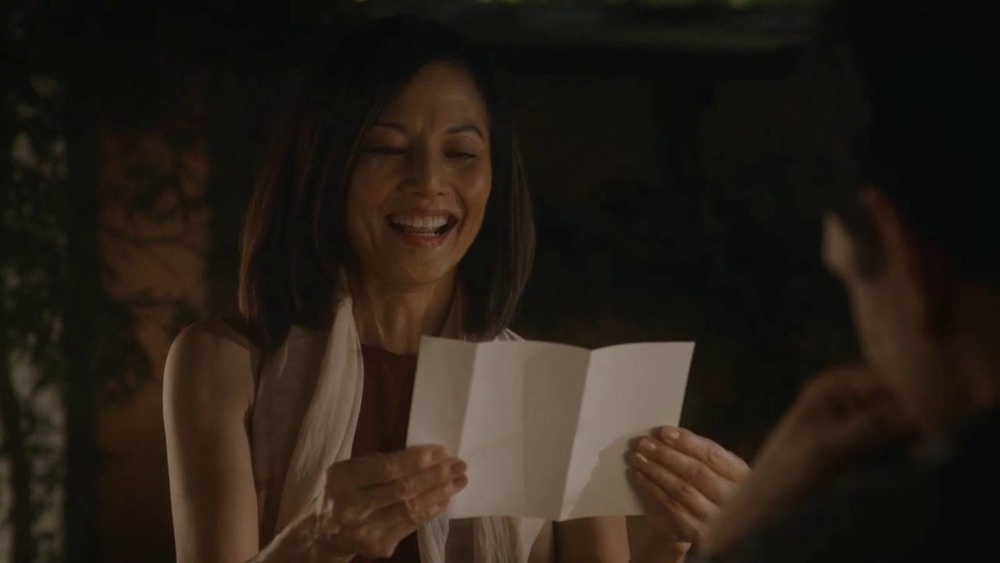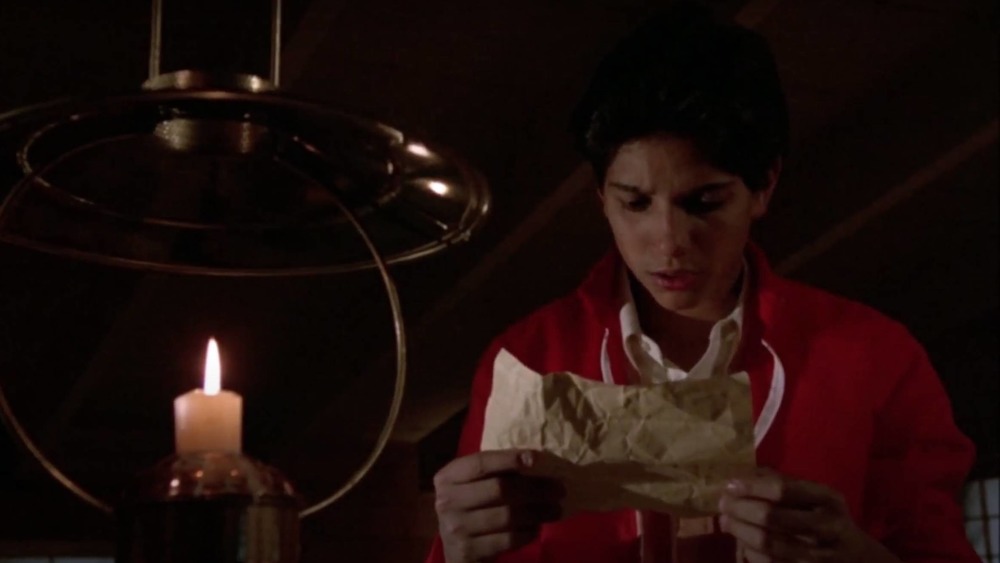Why The Letter In Cobra Kai Season 3 Means More Than You Think
Minor spoilers for Cobra Kai season 3 ahead!
Cobra Kai is back with season 3, and there's plenty of classic Karate Kid action to make you feel as though you're living in the 1980s again. The show knows how to give the people what they want, which is why it regularly incorporates flashback scenes from earlier movies. Nostalgia: always a winner.
However, not every reference is so obvious. Sometimes you really have to dig beneath the surface to appreciate a callback, such as a line of dialogue from The Karate Kid Part II that proved to be particularly prophetic for the Cobra Kai season 2 finale. Season 3 has plenty of these subtle references, and there's one moment in particular that has more significance than you may have initially realized.
In season 3, episode 4, "The Right Path," Daniel (Ralph Macchio) runs into his old friend from The Karate Kid Part II, Kumiko (Tamlyn Tomita). They catch up, and Kumiko leads Daniel to a house that once belonged to Mr. Miyagi's (Pat Morita) one true love, Yukie (Nobu McCarthy). There, she opens a box containing numerous letters written by Mr. Miyagi, and Daniel discovers one that was written the week he passed away. Kumiko translates, and it's revealed that when Mr. Miyagi was on the verge of death, he was simply thankful that he had found another family in the form of Daniel. It's one of the most emotional moments of the entire series, and it actually connects to plot points from some of the earlier films in a pretty fantastic way.
Letters have been associated with tragedy in the Miyagi-verse, but the one in Cobra Kai symbolizes hope
In The Karate Kid, Daniel stumbles upon a letter Mr. Miyagi received, informing him that his wife and child died during childbirth. In The Karate Kid Part II, Mr. Miyagi receives another letter that states how his father is very ill, and it's what inspires the karate master to return to Okinawa Island to visit him. In both of these instances, the letters represent tragedy. They only exist to bring terrible news to Mr. Miyagi.
Cobra Kai inverts the symbolic charge of letters, however. The letter Kumiko reads to Daniel is bittersweet because it's the last one Mr. Miyagi ever wrote. It also brings Daniel joy because in it his former sensei reveals how he was overjoyed in the final years of his life because he felt like a grandfather to Daniel's daughter, Sam (Mary Mouser). In a way, Mr. Miyagi reclaims the notion of letter writing. In the Miyagi-verse, writing and receiving letters isn't exclusively a melancholy act.
Cobra Kai has done a phenomenal job of recontextualizing ideas presented in the original Karate Kid movies. In those stories, letters functioned as a connection between Mr. Miyagi's new life in Reseda and his old one in Okinawa, and in more cases than not, that connection was tinged with calamity in the form of death and personal loss of identity. At the end of his life, Mr. Miyagi had both Daniel and his new family as well as Yukie to light up his heart. Those moments of joy are just as worthy of immortalization in written form.

